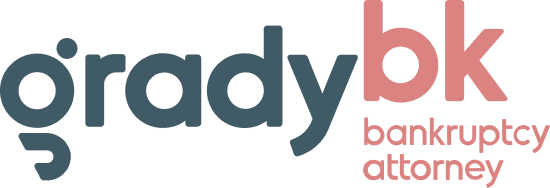Bankruptcy allows individuals and businesses to regain control of their financial situation, giving them the opportunity to feel hopeful about their future once more. Unfortunately, a stubborn stigma persists around filing for bankruptcy, as if it is a desperate or even shameful act. If you are struggling with debt, it’s essential to recognize that you are far from alone. Many individuals have accrued a significant amount of debt, which the pandemic and the recent economic downturn have worsened. As you explore your debt relief options in Auburn and Central New York, you should consider enlisting the guidance of a compassionate and experienced bankruptcy attorney who can help you understand your options and support you through the filing process. For many individuals, Chapter 7 bankruptcy offers a way forward, allowing them to receive a discharge in a matter of months. Below are some of the most frequently asked questions about Chapter 7 bankruptcy in New York to help you better understand what to expect from this process.
1. How Does Chapter 7 Bankruptcy Work?
For many individuals struggling with debt, Chapter 7 bankruptcy offers a way to discharge several types of debt within a few months. When the debtor files for Chapter 7 bankruptcy, they list everything they own (house, car, clothes, bank account), and then the law gives them exemptions that protect their property. Most chapter 7 debtors can protect all their property. There is a court hearing that the Debtor attends, and at the end of that process, the court will discharge (wipe away) the dischargeable debt, and the individual can start to regain control of their financial future and immediately start rebuilding their credit.
2. How Does Someone Qualify For Chapter 7 Bankruptcy?
Chapter 7 bankruptcies are meant for those who cannot afford to pay their debts. However, you must pass what’s known as a “means test” to qualify for a bankruptcy discharge under Chapter 7. The means test calculates your gross income over the previous six months and multiples that number by two to project an annual income. That projected annual income is then compared against the median income of other New York households based on your household size. If your projected annual income falls below the New York median income, you “pass” the means test and are likely eligible to file a Chapter 7 bankruptcy. However, if your projected annual income exceeds the median income, you may need to pursue another bankruptcy option, such as Chapter 13.
Even if you “pass” the means test, you must adhere to additional eligibility requirements to determine whether you qualify for Chapter 7 bankruptcy relief. First, you must attend a mandatory online credit counseling course from an approved agency within 180 days before you file your bankruptcy petition. Additionally, you cannot pursue a Chapter 7 bankruptcy filing if you have previously filed a Chapter 7 bankruptcy within the previous eight years or filed a Chapter 13 bankruptcy within the last six years. Finally, if the court determines that you are attempting to defraud your creditors (you try to hide assets or run up your credit cards right before you file for bankruptcy), it can dismiss your case (among other negative consequences). The best way to ensure that you qualify for Chapter 7 bankruptcy relief is to enlist the assistance of a skilled New York bankruptcy attorney.
3. What Happens Once I File For Chapter 7 Bankruptcy?
Before you file for bankruptcy, your best bet is to discuss your options with a trusted and compassionate New York lawyer. Together, you can assess the specifics of your situation and identify the most appropriate bankruptcy option to pursue. Once you’ve found an attorney to support you through the filing and discharge process, you can start taking steps to make your financial situation bright once more. Below are some of the steps you can expect to follow when pursuing your Chapter 7 bankruptcy request.
Filing the Appropriate Forms and Attending Credit Counseling
Your attorney will prepare your bankruptcy petition for you. The bankruptcy petition asks for detailed information, including records of your assets, liabilities, income, expenses, and overall financial standing. You’ll also need to identify any existing contracts or leases in your name. Next, you must attend an approved online credit counseling session that provides information about your debt relief options.
The Trustee and Meeting With Creditors
Once you have filed your bankruptcy petition, the court will appoint a trustee to verify the documents you filed. You will then attend a meeting with the trustee and your attorney, where you may be asked to answer questions about your documents. You will also be required to attend a second online debtor education course to help you prepare for a more stable financial future.
The Discharge
Upon successful completion of the above steps and requirements, the court will issue a discharge. From there, you will be released from the remaining dischargeable debts you owe to your creditors, allowing you to obtain the fresh financial start you need to feel hopeful about your future. You will then start rebuilding your credit immediately.

